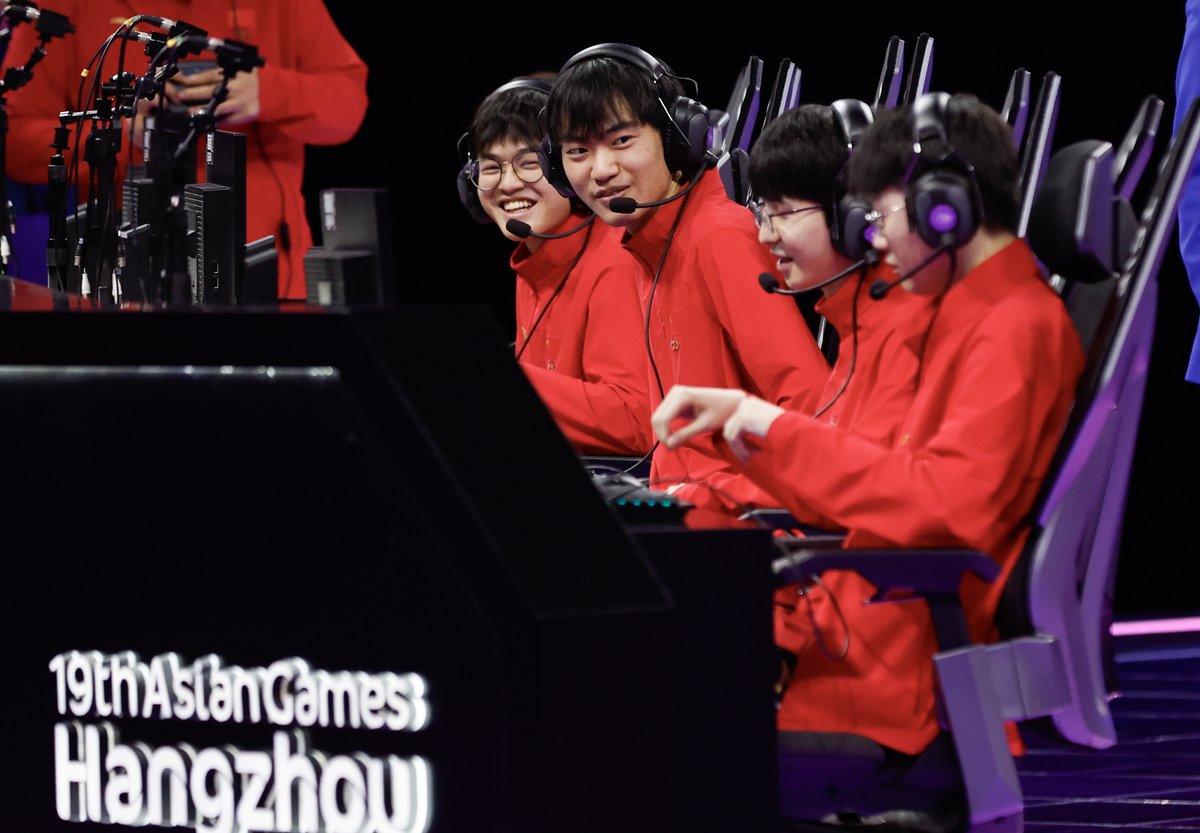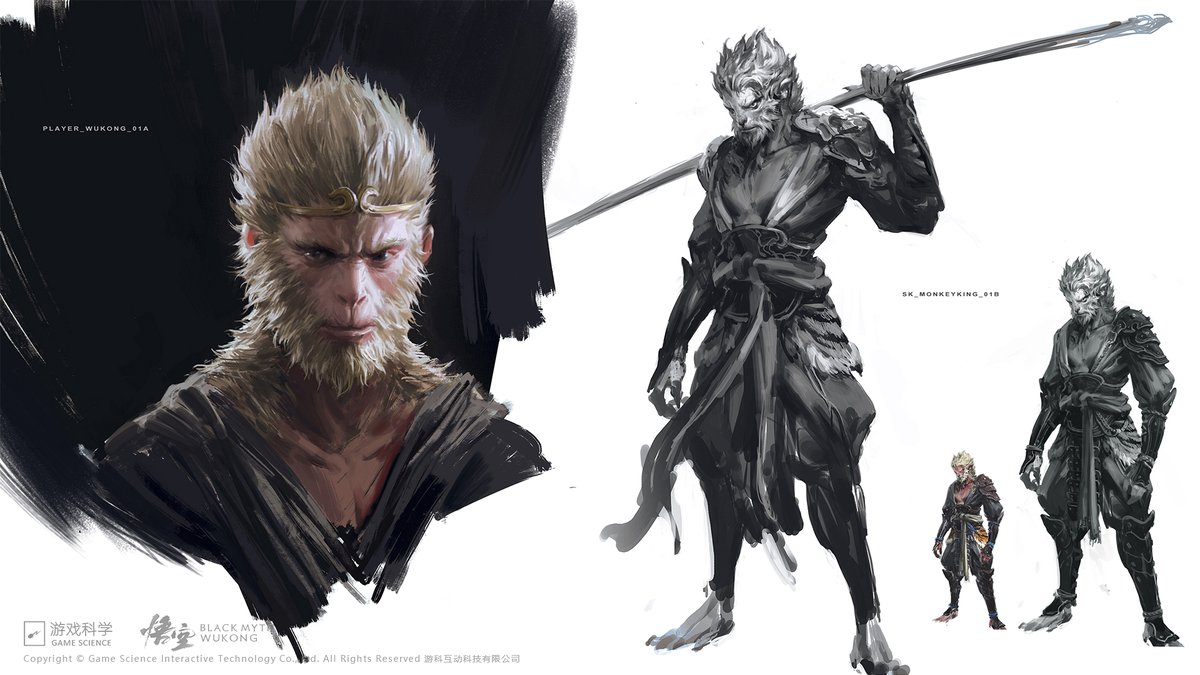A look back at 2023 in Chinese video games, a year marked by farewells, e-sports debuts, and much-hyped new titles.
It’s been a wild year for China’s video game industry. After the issuance of game licenses was frozen for months in 2021, and the pandemic saw game revenues fall for the first time in 2022, the last 12 months saw the country’s gaming market roar back to life.
Revenue grew 14 percent compared to 2022 to 303 billion yuan, a record high. But this year also saw the end (in China) of one of the most popular online roleplaying games of all time, a misogynist dating sim raking in money, and e-sports appearing in an Olympic competition for the first time.
China’s game makers also continued to make inroads abroad. Tencent, the world’s largest game maker, recently reported 14 percent year-on-year revenue growth in its international games division. Chinese games like Tencent’s battle arena game Honor of Kings, the shooter PUBG, and HoYoVerse’s roleplaying game Genshin Impact, have continued to take the global gaming arena by storm.
Back at home, the WePlay gaming convention in Shanghai doubled in size after a two-year hiatus, speaking to a burgeoning Chinese gaming scene. It’s been a rollercoaster year for video games in China. Here are some of the biggest stories:
World of Warcraft ends
The year was off to a sad start for many players when the popular online roleplaying game World of Warcraft shut down its Chinese servers in January. After nearly two decades in China, the game ended when the licensing deal between US game maker Activision Blizzard and their Chinese partner NetEase expired.
The closure had a deep impact on many Chinese players (probably millions of them at the peak of the game’s popularity around 2012, but far fewer now) because, for many of them, World of Warcraft was a vital part of their youth and a source of cherished memories and friendships. As the game shut down, players bid farewell to their digital avatars and the expansive world they had inhabited. The shutdown marked the end of a community where many had spent thousands of hours engaged in adventures, battles, and building friendships.
Whether Chinese servers will return one day is unknown, and the question has become somewhat of a meme on the popular Chinese gaming forum NGA, with many speculating about what they’ll do if the game ever returns to China. Answers range from “see if my gold is still there,” to “press the spacebar to jump in the air,” while others joke that the long absence means they may not remember the password to their game account anyway.
Steam provides an outlet for Chinese games
In the first half of 2023, close to 600 Chinese games were released on the US-based game distribution platform Steam, compared to around 700 in the whole of the previous year. Roleplaying game Volcano Princess, released in April by Gamera Games (a Shanghai-based studio that released a whopping 19 games on Steam in 2022), racked up 600,000 sales in just three months.
Much bigger news in China, though, was the game Love Is All Around published on Steam in October. This sexist dating simulator went viral in China for its crass storyline that has players step into the shoes of a failed entrepreneur who, inexplicably, attracts the advances of multiple women. Depressingly, the game has over 25,000 overwhelmingly positive reviews on Steam.
The game and its characters have since become both meme fodder and the object of more in-depth analysis to explore why it’s so popular among (male) players. “The game’s popularity stems from its ability to provide players with a sense of superiority,” says an analysis published on GameRes, a major Chinese media outlet, in October.
E-sports debut at Asian Games
The 2023 Asian Games, held in Hangzhou, Zhejiang province, from September 23 to October 8, marked a significant gaming milestone by including e-sports as an official medal event for the first time. This historic inclusion reflected the global rise of e-sports, recognizing it as a form of sport demanding skill, strategy, and dedication akin to traditional sports.
Two notable games from China—Honor of Kings, a multiplayer battle arena game, and Dream Three Kingdoms 2—were among the seven titles in the e-sports lineup which also included League of Legends, DOTA 2, and PUBG.
Though Blizzard’s popular strategy card game Hearthstone, originally scheduled as one of the events, was pulled after the game publisher ended its 14-year licensing agreement with NetEase. The e-sports events attracted over 500 athletes from 31 countries and regions, competing for gold at the brand news 5,000-seater Hangzhou Esports Center.
The Chinese team won the gold medal in the Honor of Kings, PUBG, and Dream Three Kingdoms 2 events, while Thai competitor Teedech Songsaisakul triumphed in the soccer simulator EA FC 24.
Hype over Black Myth: Wukong
Perhaps one of the most eagerly anticipated Chinese games of all time finally announced its release date in December this year. Black Myth: Wukong by Chinese developer Game Science is an action roleplaying game inspired by the classic Ming dynasty novel Journey to the West (《西游记》).
The game, which is due to release on August 20, 2024, has both foreign and local gamers excited. Players will take on the role of Sun Wukong, the Monkey King, and delve into a rich world of adventure and combat inspired by ancient Chinese mythology. Gamers will find out if Black Myth can live up to the hype soon.
Additional reporting by Sam Davies
















